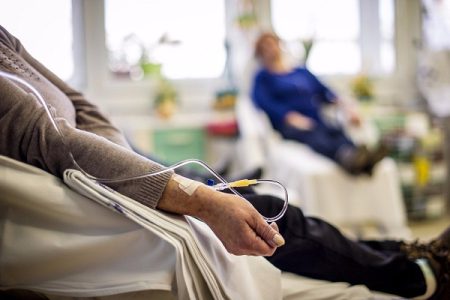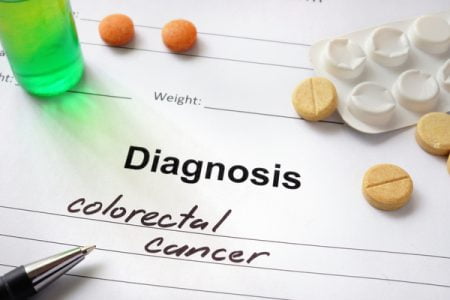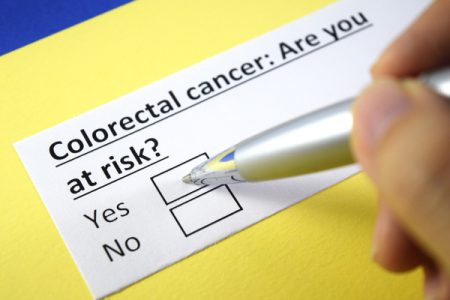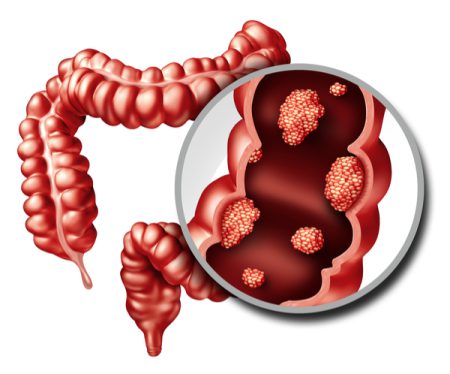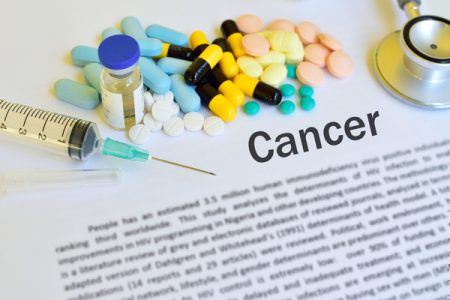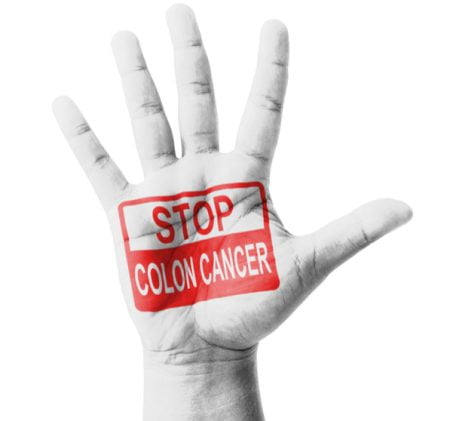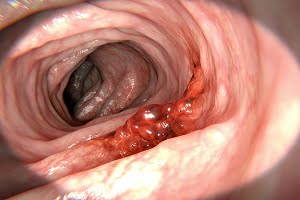Browsing: Colorectal Cancer
Comprehensive Information, Resources, and Support on
Colorectal Cancer
Colorectal cancer, also known as colon cancer, rectal cancer, bowel cancer or colon neoplasms is a cancer that begins in the colon or rectum, but can spread to other parts of the body. According to reports from WHO and CDC, it is the second most common of all cancers, after lung cancer, worldwide. About 1 in 20 of all Americans will develop colorectal[expand title=”” ]cancer in their lifetime, according to the American Cancer Society. Men are at a higher risk than women. Colorectal cancer generally begins as a growth called polyp on the inner lining of the colon or rectum. Some polyps become cancer over the course of a few years, but not all polyps change to cancer.
The two types of polyps are:
-Adenomatous polyps (adenomas): These polyps can change into cancer
-Hyperplastic polyps and inflammatory polyps: These polyps generally are not pre-cancerous
In most cases, it is not clear what causes colorectal cancer. Experts say that cancer occurs when there is a problem in the DNA and the cells grow abnormally. Genetic mutations can increase the risk of colorectal cancer. Studies have shown a relationship between a diet full of fat and low in fiber and an increased risk of colon cancer. Other risk factors are older age, African-American race, family history, inherited syndromes that increase the risk of CRC, obesity, alcohol, and smoking.
Symptoms of colorectal cancer may include:
-changed bowel movements and abdominal discomfort
-feeling that your bowel is not empty completely
-narrower stools
-bloating and gas pains often
-unexplained loss of weight
-nausea or vomiting
-weakness
-blood in your stool
If you note blood in your stool or continued changed bowel habits, contact a specialist. Colorectal cancers can be prevented if detected early. Your doctor may recommend screening to detect any suspected cancer. Screening has been shown to reduce the risk of death from colorectal cancer. People with an average risk of cancer can consider screening at age 50. But people with a higher risk should consider screening earlier. If your doctor suspects colorectal cancer, he may recommend a few diagnosis tests such as blood tests, colonoscopy, and stool test. Various treatment options such as surgery, chemotherapy, radiation therapy, drug therapy, and alternative medicine are provided to a patient.
Read Articles and view Graphics below. Hope you enjoy the experience with DiseaseFix!
[/expand]Cancer treatments can cause several changes to your body. There are some side effects of each type of cancer treatment, which different people experience differently. As you prepare yourself for cancer treatment, you may benefit from these coping strategies.
Vomiting Blood (Haematemesis): Why Do People Throw Up Blood?
Blood-filled vomiting can indicate a serious issue such as liver cirrhosis or other alcoholic liver diseases. “Throwing Up Blood: Living with Hematemesis” is a guide that covers symptoms, causes, tests, treatments, and coping mechanisms for patients with hematemesis.
Colon Cancer Pain (Bowel Cancer Pain): Characteristics and Its Management
Cancer pain is usually dull and annoying and one may confuse it with other colon or stomach disease. The pain generally occurs because of the tumor. The tumor presses the nerves, bones etc and cause mild to severe pain. Sometimes, these tumors may grow unnoticed until serious damage of the colon wall has happened.
What You Should Know About Chemotherapy for Cancer
Chemotherapy is a widely used treatment for cancer. The term ‘chemotherapy’ refers to the drugs that prevent cancer cells from dividing and growing. It works by killing the cells that divide in an uncontrolled way.
When you first meet your doctor, he or she will ask about your symptoms and whether you have a family…
Normally, healthy cells grow and divide in regularly to keep your body functioning normally. But when the DNA of a…
Colorectal cancer does not cause symptoms right away. It progresses over a period of time and the signs and symptoms are visible quite late. Many of the symptoms of colon cancer can also be similar to those of other diseases and may be caused by something else …
If you have colorectal cancer in, there’s good chance that you are cured or can live longer with this disease than before. This is mainly because there are better and advanced treatments options for it these days. You should discuss with your doctor the possible options and about which of them suits you the most. Treatment of colorectal cancer depends on several factors.
Can Colorectal Cancer Be Prevented? There is no way that you confirm prevention of the colorectal cancer. But, there are…
Colorectal cancer, also known as bowel cancer, colon cancer or rectal cancer, depending on where they start from, is a cancer of the colon and the rectum. It starts in the colon or the rectum. Approximately 20% of patients with colorectal cancer (CRC) already have metastases at the time of diagnosis. Read about colon cancer survival rate and overview, life expectancy, prognosis, outlook, and metastasis.







